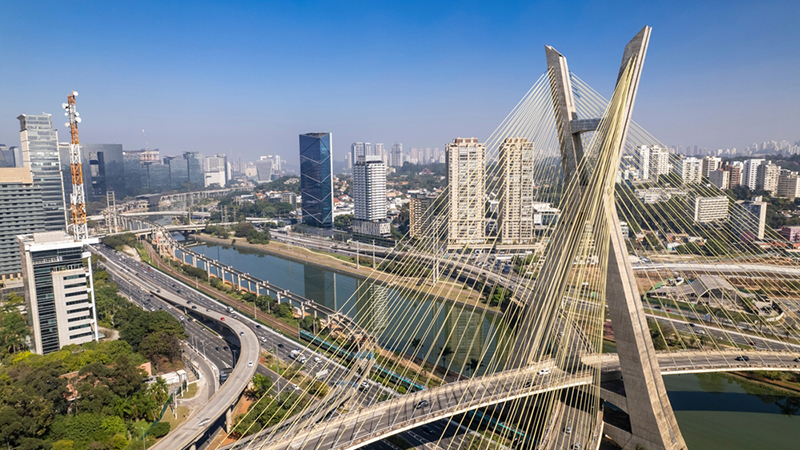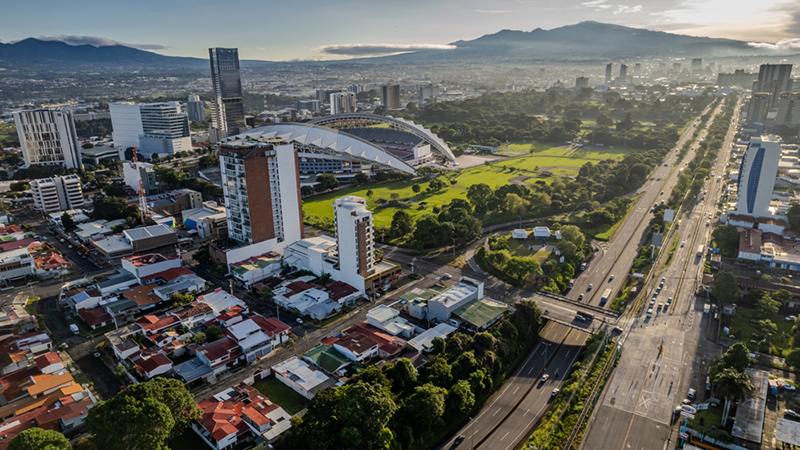Cross Border Business Banking Services by Entity Management Service
Cross-border business banking services offered by entity management service providers empower businesses to effectively manage their finances across...

Brazil has Latin America's largest economy, offering a wealth of opportunities for foreign investors and entrepreneurs. With its diverse market, strategic location, a federal government, and growing middle class, Brazil is an attractive destination for international business ventures. However, navigating the Brazilian business landscape requires a thorough understanding of local regulations, cultural nuances, and administrative procedures.
Before establishing a business in Brazil, it's crucial to know the entire process and conduct comprehensive market research. Brazil's economy is diverse, with significant opportunities in sectors such as agriculture, energy, technology, and consumer goods. Understanding regional differences, consumer behavior, and local competition will help in crafting a viable business strategy.
Index
Guide to Starting a Business in Brazil | Timeline to Open a Business | Opening a Business Bank Account | FAQs
>> For more detailed information, read Doing Business in Brazil.
Yes, foreign nationals can start a business in Brazil. However, the process involves multiple legal steps, and understanding the local regulations is essential to avoid delays and ensure compliance.
Choose from existing legal entities and create a detailed business plan that includes your financial projections, market strategy, and operating model.
Brazil recognizes several business structures, but the most common for foreigners are:
Limited Liability Company (LTDA): Ideal for small and medium-sized businesses. Requires at least two shareholders and offers limited liability protection.
Corporation (Sociedade Anônima - SA): Suited for larger businesses, especially those planning to raise capital. More complex and costly to maintain.
Register a unique name with the Board of Trade (Junta Comercial) that reflects your business activity and follows local naming conventions.
Submit your Articles of Association and other incorporation documents. This step typically takes between 60 to 90 days.
Apply for a CNPJ number with the Federal Revenue Service (Receita Federal). This is your official company tax ID in Brazil.
Enroll foreign shareholders in the taxpayer registry. This process may require a CPF (individual tax ID) for each shareholder.
Depending on your industry and location, you may need operating licenses, health permits, and environmental clearances.
State registration: For businesses that sell goods and services.
Municipal registration: Required for a municipal license to operate locally.

The company registration process typically takes 60 to 90 days, excluding the time to open a corporate bank account. The process involves coordination with federal, state, and municipal authorities.
Hiring local consultants familiar with Brazilian business law can streamline this process. If you need to hire staff for your local business, our global expansion team can help.
Board of Trade registration: Essential to legally establish your business.
CNPJ: Required for tax compliance.
CPF: Required for individual shareholders.
Licenses and permits: Industry-dependent but mandatory.
Corporate tax compliance: Brazil's corporate tax rate is 34%. Businesses must also meet financial reporting obligations.
Starting April 10, 2025, citizens from the US, Canada, and Australia will need a Visitor Visa (VIVIS) for business purposes. Required documents typically include:
Valid passport
Completed visa application
Proof of business activities (e.g., invitation letter, contracts)
Proof of financial means
Consult your nearest Brazilian consulate for detailed requirements.
Opening a bank account is essential for operational activities. Follow these tips:
Company registration papers, CNPJ, proof of address, and shareholder IDs.
Compare banking services and fees.
Try to establish a relationship with a bank to ease the onboarding process.
Managing international business finances can be complex, especially in a high-compliance market like Brazil. At H&CO, we help foreign investors optimize their financial operations by ensuring full tax compliance, selecting the right banking partners, and implementing efficient cross-border payment solutions.
Our team of international tax and accounting professionals provides strategic support tailored to your industry and business goals.
There is no legal minimum capital for most business types, but in practice, many banks and authorities expect a reasonable initial investment. For companies with foreign shareholders, a minimum of BRL 150,000 is often recommended, especially if applying for a business visa.
No, but you do need a local legal representative (an individual or entity residing in Brazil) who can represent your business before Brazilian authorities.
The two most common structures are LTDA (Limited Liability Company) – Ideal for SMEs, S.A. (Corporation) – Suitable for larger ventures or businesses seeking outside investment.
Corporate income tax in Brazil is approximately 34%, including social contribution taxes. Your business may also be subject to municipal service taxes (ISS), state VAT (ICMS), and federal taxes (PIS/COFINS), depending on your industry.
Not necessarily. With the proper power of attorney and support from a local advisor, you can complete most procedures remotely. However, some banks may require in-person presence to open a business bank account.

Cross-border business banking services offered by entity management service providers empower businesses to effectively manage their finances across...

Effective international business compliance with annual obligations is crucial to avoid penalties and ensure operational efficiency. From tax filings...

Starting a business in a foreign country requires careful planning, strategic decision-making, and a clear understanding of the legal and regulatory...